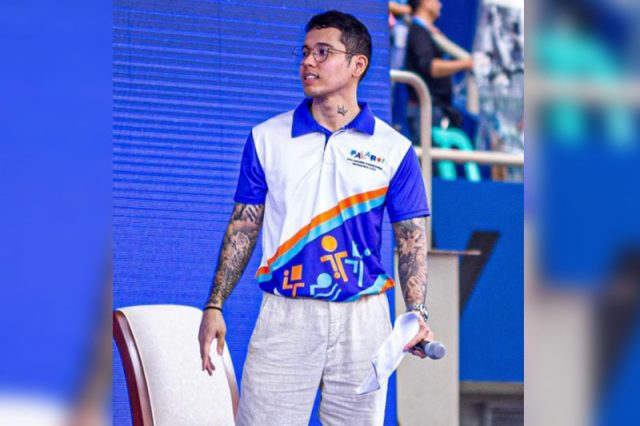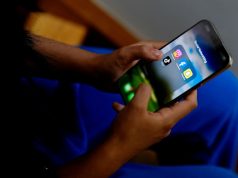Talks about discrimination of tattoed people were discussed online after sports anchor Mikee Reyes shared an experience where he was asked to cover his tattoos for an event.
After making history for being TV5’s first fully tattooed sports anchor, the digital content creator shared that he declined to appear in an event he did not identify since he was asked to wear long sleeves to cover up the tattoos on his arms.
Reyes, also known as “Tito Mikee” on social media, shared some screengrabs of a conversation he had with the event’s contact person, who relayed a request from a client after giving him confirmation.
According to them, the event is a “family day” and there would be “a lot of kids,” hence the request.
Reyes then responded that he was “not really comfortable with being asked to cover” his tattoos to do his job.
The former basketball player said he would “pass” on the event, but added that he hoped he could work with them “soon.”
He then shared his thoughts about the incident on social media posts on Wednesday.
“I assume kilala niyo naman sino kinukuha niyo?” he began with smiling-with-sweatdrop emojis.
“You could’ve just told me na ang attire is formal or need na long sleeves, and [I] wouldn’t look into it. Susunod naman ako,” Reyes added with a grinning emoji.
“I’m sure hindi kasalanan nung kausap ko. Sinabihan lang naman siya to ask me. Pero tuloy lang naman tayo, guys. God is too good, for us to worry [about] these things. I’ve already made more friends and achieved more things, being myself, than [I] could ever have trying to be someone else,” he added.
“Ika ng mga tito [or] tita, THANK YOU, NEXT,” the social media personality continued, referencing a song by pop singer Ariana Grande.
Reyes’ Facebook post has amassed 39,000 likes and reactions, 11,000 shares, and over 1,300 comments so far.
While some praised the host for his optimistic attitude, others wondered why tattooed persons continue to be stereotyped in modern society.
“And kids shouldn’t see tats [tattoos] because? Ugh. Dapat mga trapo bawal makita ng mga bata,” a Facebook user commented.
“2023 naaaa. Stop normalizing ‘pag may tattoo, eh masamang tao na. [By the way], good job,” another Pinoy wrote.
“I may not have tattoos, but stereotyping just because of tattoo? [Come on], we are now living in [a] digital world. It doesn’t make someone less of a person because he [or] she has [a] tattoo. Nowadays, tattoo is a fashion and art to express himself freely… My body, my rules,” commented another online user.
“They should educate their kids na ‘wag maging judgemental, na kahit mag-tattoo, i-welcome sa kahit [among] okasyon and hindi nababase sa appearance ang pagiging isang mabuting tao… If they’re afraid of tattoo whatsoever, baka hindi nila napag-aralan na ang mga sinaunang Pilipino ay mga tattoo-an,” wrote a different Pinoy.
“Tattoo discrimination is still alive, nakakalungkot lang na nasa [makabagong] panahon na tayo pero ‘di [pa din] nawawala ang ganitong issue,” the Pinoy added.
On tattoos
While displaying body art has since become more common compared to before, there are still prejudices against it.
Experts said that in a system-justification view, stereotypes help “explain” social discrepancies between groups as it “legitimizes differences in social status and success.”
“A system-justification view posits that stereotypes can be used to rationalize social roles and serve to justify the derogation of certain group,” an entry from The Journal of Social Psychology 2018 said.
“In the case of tattoos, stereotypes about tattooed individuals, such as being criminal, dangerous, or drug addicts, legitimize the fact that they are discriminated against because of physical appearance,” it added.
“By accepting the stereotype that tattooed individuals are dangerous, others can be justified in holding prejudiced attitudes toward another person based on their appearance,” the entry further said.
For some tattooed individuals, their body art is more than just a lifestyle choice. For them, it is an expression of someone’s identity, just as much as their religion or other beliefs.
“People who are modified (by tattoos) have an identity because of their image and who they are,” Body Art (formerly Mathew Whelan) said in a 2014 interview.
Whelan describes himself as the United Kingdom’s most tattooed man.










